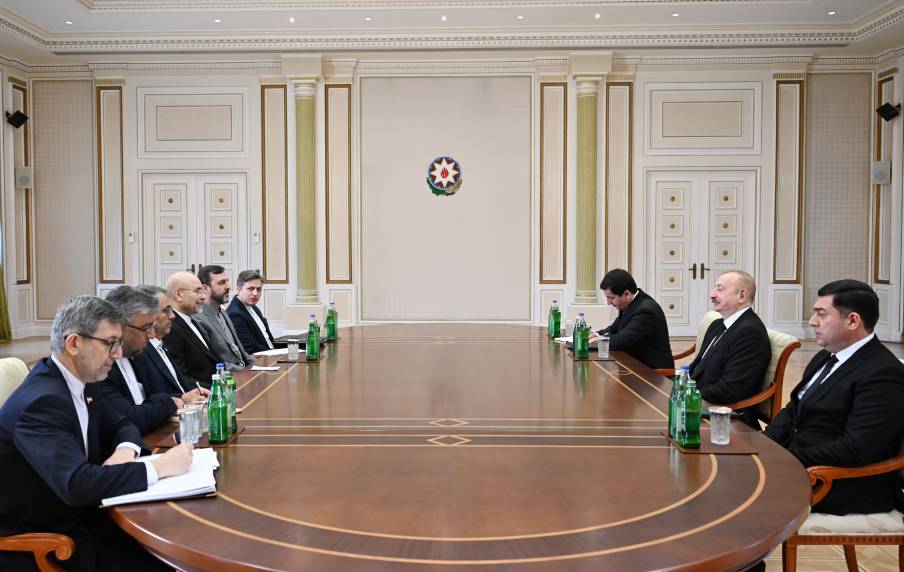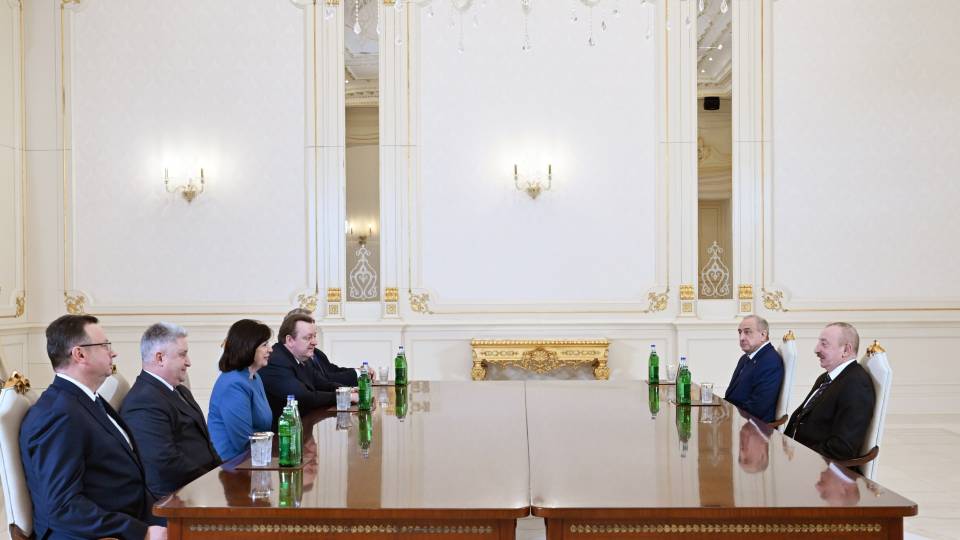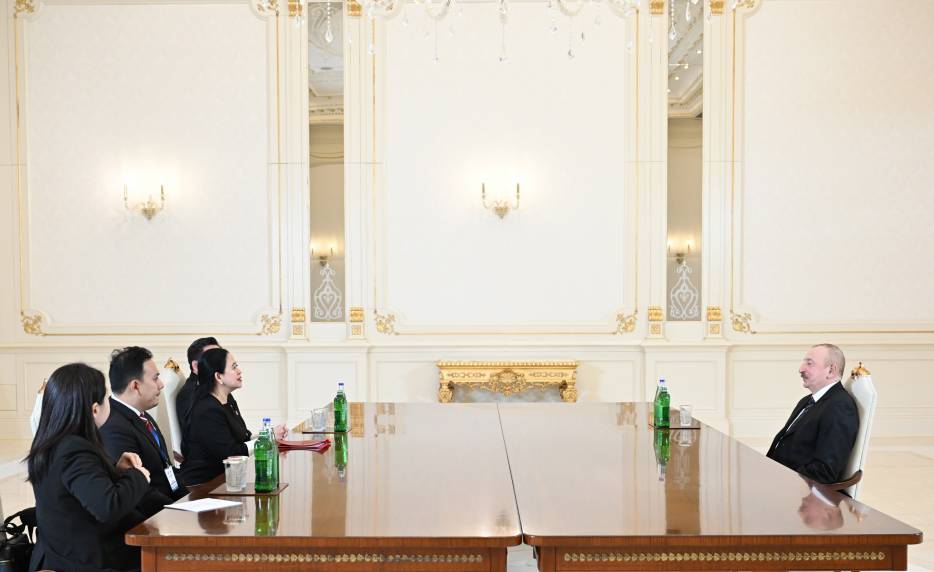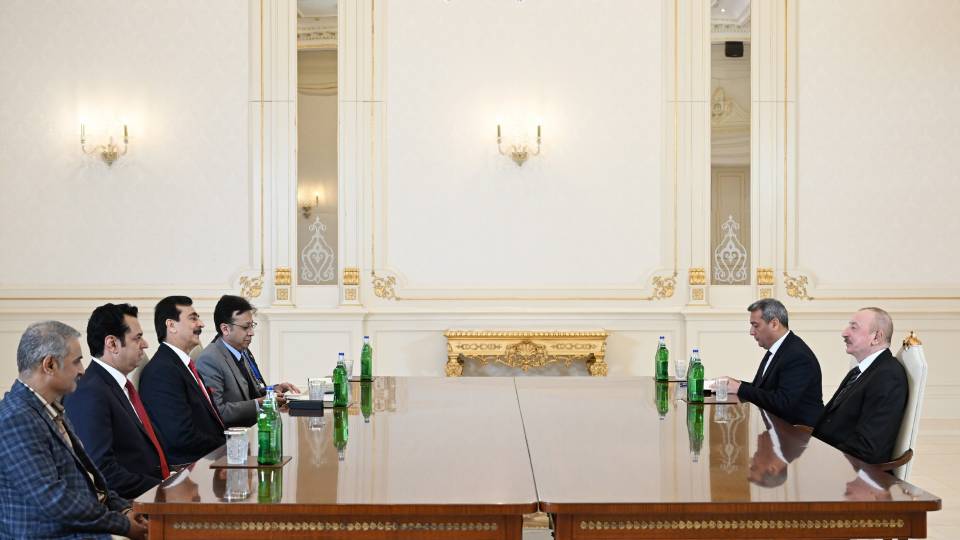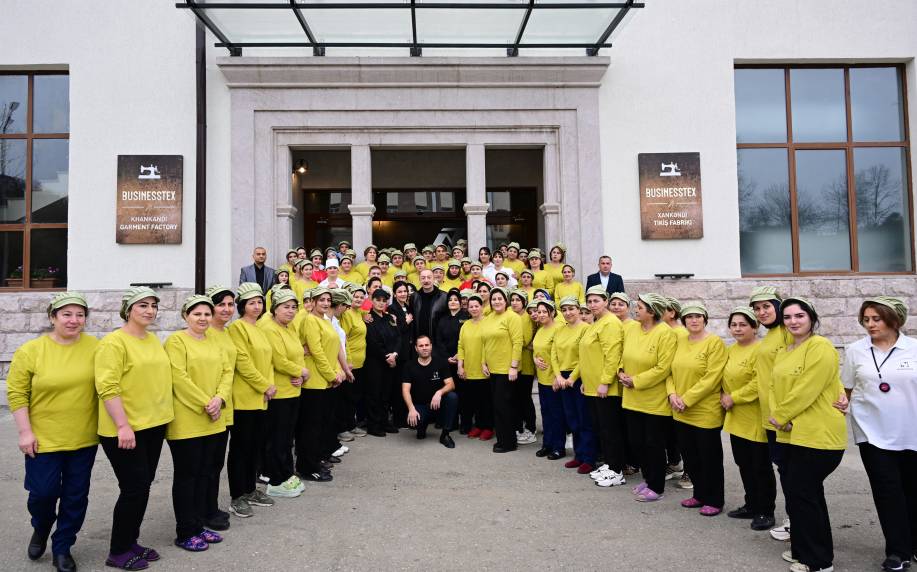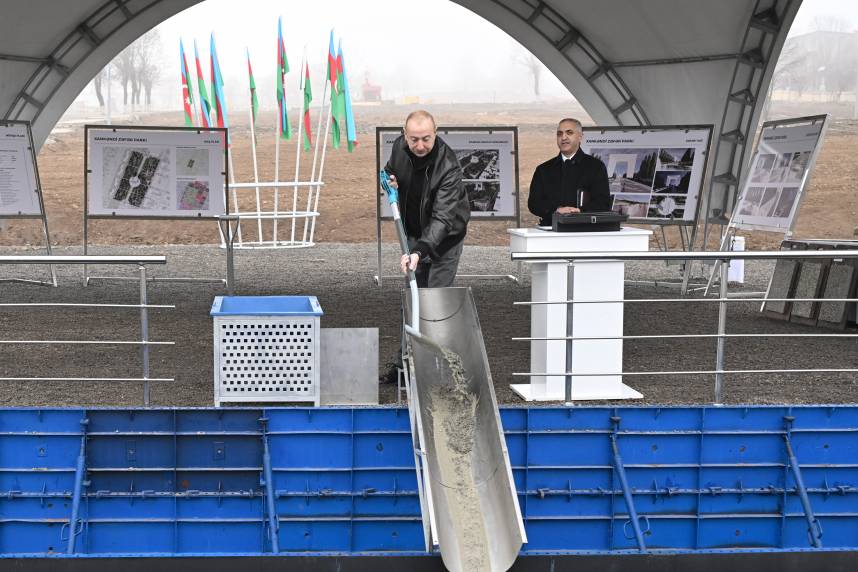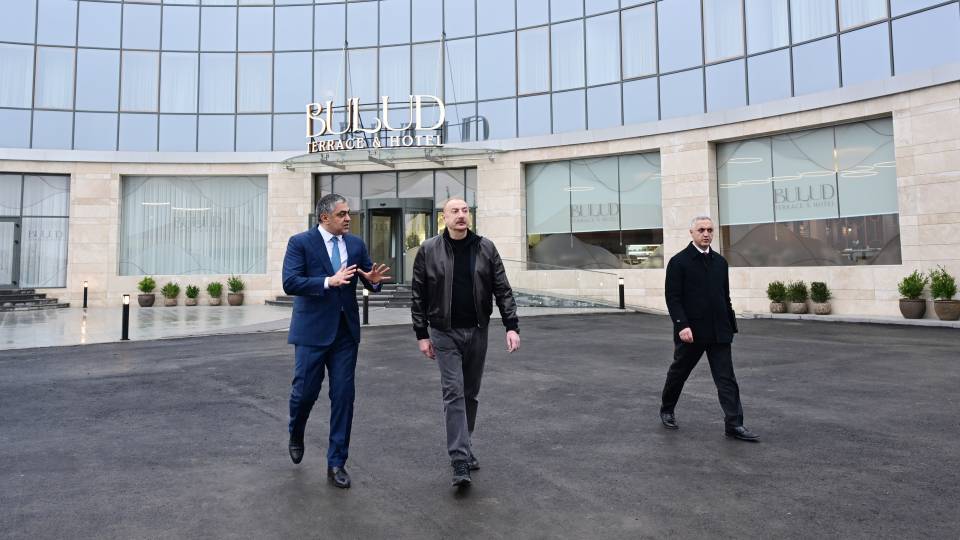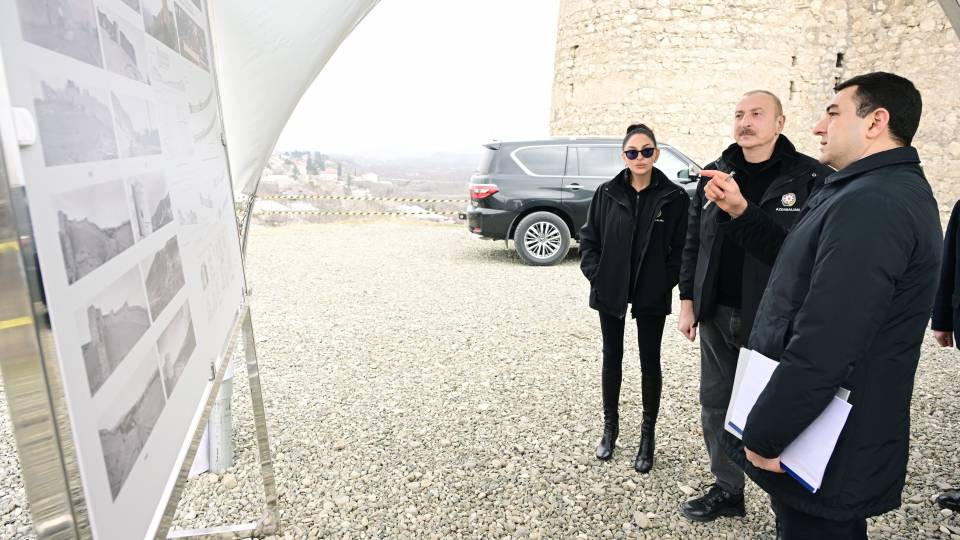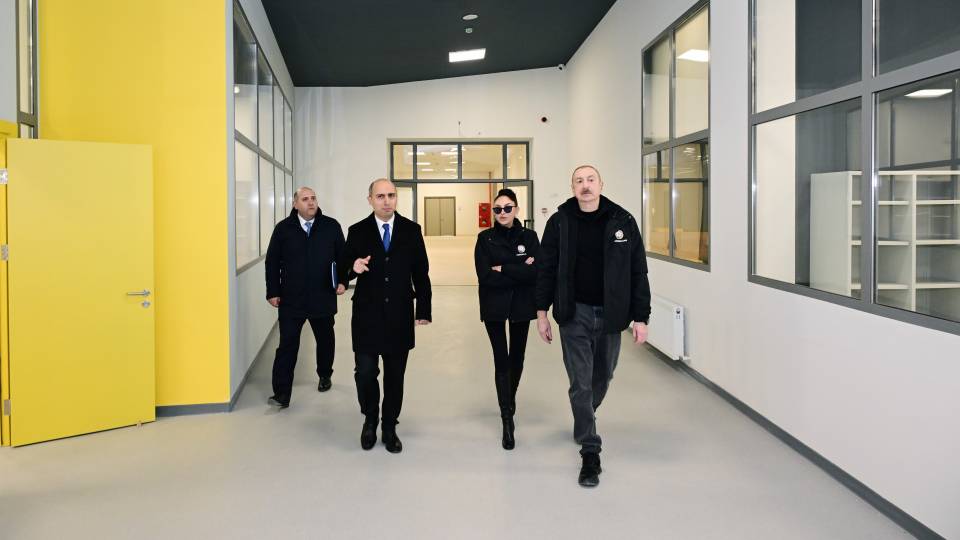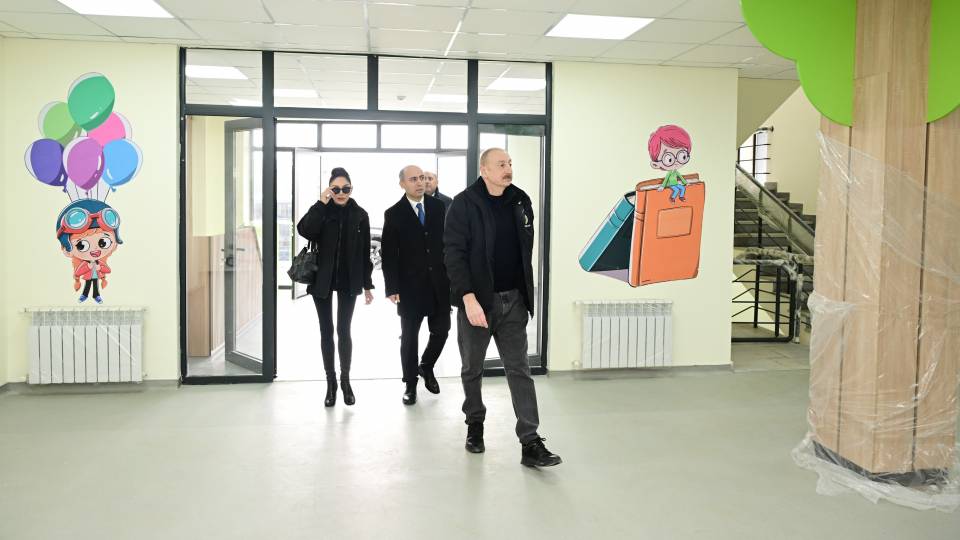13:13
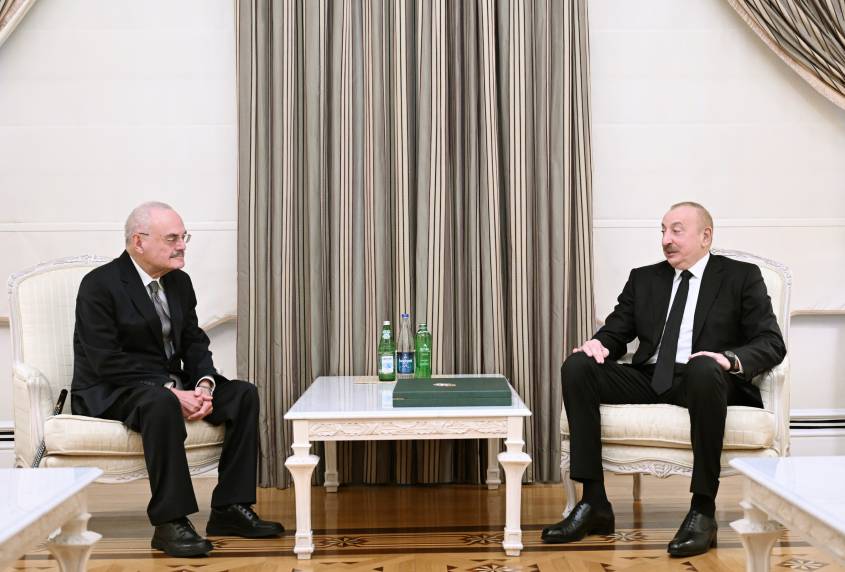
Al-Ahram Weekly
24 April 2013
After the disintegration of the Soviet Union, the independent Republic of Azerbaijan — a legitimate successor to the Azerbaijan Democratic Republic (ADR), whose brief existence between 1918 and 1920 marked the first democratic republic in the entire Middle East — reemerged in 1991.
On the thorny way towards independence in the early 1990s, the new Republic of Azerbaijan had to face a complex set of internal and external problems, from economic hardship compounded by hyper-inflation and complete bankruptcy in the economy to — most notably — Armenian military aggression.
Under the cloud of problems inherent to the early days of Azerbaijan’s independence, some were sceptical whether Azerbaijan would be able to navigate successfully through the complicated geopolitics of regional affairs, to manage internal stability and financial/economic downturn, and the consequences of Armenian aggression. However, Azerbaijan has proven the naysayers wrong, and although national security challenges remain, it has succeeded in sustaining hard-gained independence.
Proceeding from the will of its people, Azerbaijan has embarked on an irreversible path of democratic development through explicit assertion of the rule of law, ensuring freedom of expression and other fundamental rights, increasing the capacity of democratic institutions and the promotion of civil society since the mid-1990s.
Having integrated into European legal space, Azerbaijan has become a full-fledged member of the Organisation of Security and Cooperation in Europe (OSCE) and, subsequently, the Council of Europe (CoE) and remains steadfast in its commitments to the values and principles that these institutions stand for.
It is worth mentioning that membership of the CoE does not come automatically, but rather is grounded on a performance-based process measured through respect for human rights and firm commitment to democratic governance in the candidate country. Thus, nothing else but Azerbaijan’s democratic performance and considerable achievements in democratisation and protection of human rights guaranteed its place in the CoE family.
In parallel to democratic reforms, massive economic transformation towards market economy and the development of a new oil strategy for Azerbaijan have been launched. The new oil strategy reached its pinnacle in the signing of a multi-billion “Contract of the Century” between the government of Azerbaijan and international oil companies in 1994. Currently, Azerbaijan, with her seven operating oil and gas pipelines, makes tangible contributions to the security and diversification of world energy markets.
Based on the vision of Heydar Alliyev, national leader of Azerbaijan, that “Oil is a major wealth of Azerbaijan that belongs not only to this generation, but also to future generations,” the government of Azerbaijan attaches utmost importance on transparency and efficient management of oil and gas revenues. For that purpose, the State Oil Fund of the Republic of Azerbaijan was established to ensure transparency of oil revenues and intergenerational equality of benefit with regard to the country’s oil wealth, whilst improving the economic wellbeing of the population today and safeguarding economic security for future generations.
The strategic location of Azerbaijan at the intersection of major trade routes along the emerging East-West and North-South transport and energy corridors is an important asset, turning the country into an energy and infrastructure hub. In that domain, being actively engaged with neighbouring countries, Azerbaijan has started to develop air, land, maritime and railroad components of the ancient Silk Road. The regional railroad infrastructure between Azerbaijan, Georgia and Turkey, after completion in 2013, will open an enormous opportunity for delivering all kinds of cargo between Asia and Europe.
As a consequence of a steadfast democratisation process, sustainable economic reforms and wise management of oil and gas revenues, 20 years after independence, Azerbaijan has transformed from an aid recipient to a donor country with an economy worth $65 billion and the foreign currency reserves exceeding $48 billion, and has an ambitious but realistic goal of obtaining the status of a developed country by the mid-2020s. Suffice to mention that only within the last five years Azerbaijan has almost tripled its GDP, and dramatic poverty reduction has been achieved from 49 per cent in 2003 to six per cent in 2012, while Azerbaijan’s economic output accounts for 80 per cent of the whole economy of the Caucasus region.
In the period 1995 to 2010, $95 billion has been invested in the economy of the country, $55 billion of which is foreign investment. The share of domestic investment in the national economy is substantially increasing. In 2011, $20 billion was invested in the economy, where the share of foreign investment was around $7 billion.
While actively investing in healthcare, science, education, human development and the modernisation of infrastructure, Azerbaijan has set forth a strategic goal to ensure diversification of the economy with a particular emphasis put on information and communication technologies (ICT) and industrial development, tourism, agriculture and transport. The first satellite of Azerbaijan has already been launched and the second will be put into orbit in 2015, substantially enhancing the ICT potential of Azerbaijan. In fact, GDP growth in the non-oil sector surpassed GDP growth in the whole economy with an indicator of 9.4 per cent in 2011 and 7.7 per cent in the first quarter of 2012.
It should be mentioned that consolidation of its democratic and stable development and strong economy has become the driving forces behind Azerbaijan’s active, confident and independent foreign policy based on the principles of the pre-eminence of international law and justice.
Once being a consumer of security, today, Azerbaijan is an exporter of peace, security, stability and tolerance in the region and beyond through dialogue, engagement and cooperation. It is a constructive and reliable partner, able to play an important role in setting the parameters of fruitful regional cooperation.
Azerbaijan is also an active member of many international and regional organisations, ranging from the UN, the Non-Aligned Movement, the Organisation of Islamic Cooperation (OIC), to the OSCE, the Economic Cooperation Organisation (ECO), CoE and others. In each case we are constantly looking into ways of making these organisations more effective, and lead many initiatives to this end. The election of Azerbaijan to the UN Security Council non-permanent seat for the term 2012-2013 with the support of 155 states, and the invitation rendered to Azerbaijan to take part in the G-20 global economic governance forum foreign ministerial meeting is attributable to Azerbaijan’s growing influence in the international arena.
As an emerging donor and investor country, Azerbaijan demonstrates full support and undertakes ceaseless efforts for promotion of sustainable development and global prosperity for all, paying particular attention to addressing the special needs of least developed countries. To enlarge the boundaries of peace and security, Azerbaijan makes tangible contributions to international peacekeeping operations conducted in many different parts of the world.
Azerbaijan has always been a place of coexistence and tolerance between different faiths, ethnic groups and philosophies. As an active member of the Group of Friends of the Alliance of Civilisations, Azerbaijan contributes to the promotion of inter-religious and intercultural dialogue based on mutual respect and understanding. However, we cannot but once again express our deep concern over the recent escalation provoked by blasphemy against Islam. We strongly condemn all assaults against religion.
Azerbaijan, historically being part of the Islamic world and sharing the progressive heritage and spiritual values of the Islamic civilisation, spares no efforts to support the joint action of member countries of the OIC to foster global dialogue and cooperation for the promotion of tolerance, peace and better understanding across countries, cultures and civilisations and to eradicate elements of Islamophobia.
That apart, in the light of unfolding changes in the region, the bonds of historical ties with the Arab-Islamic world — which is naturally yet another priority dimension of Azerbaijan’s foreign policy — expose us to new opportunities for fostering even stronger mechanisms of partnership with the countries of the region and Egypt in particular.
Having lived through the transition period in the experience of my country, I have every reason to be more than optimistic of the ability of Egypt and its people to succeed in overcoming current burdens.
As regards the Middle East and Israeli-Palestine conflict, I have to reiterate that Azerbaijan shares the concern of the international community over Israeli settlement activities in the occupied Palestinian territories, which place a tremendous burden on civilians, cause serious obstruction to the peace process and, more dangerously, threaten the two-state solution and the emergence of a viable Palestinian state. Azerbaijan stands hopeful that observer status at the UN will facilitate full membership of an independent and sovereign State of Palestine in the UN.
As a country suffering from the occupation of its territories and forcible displacement of hundreds of thousands of its citizens, Azerbaijan cannot tolerate persistent, grave and systematic violations of the fundamental norms and principles of international law. There are still instances where archaic patterns of the use of force against territorial integrity and the political independence of states are practised for achieving territorial gains.
In that regard, the ongoing conflict between Armenia and Azerbaijan continues to represent a serious threat and challenge to international and regional peace and security and hinders materialisation of regional development in full capacity in the South Caucasus. The conflict has resulted in the occupation of almost 20 per cent of the territory of Azerbaijan and has made more than one million people in the country internally displaced persons or refugees. The war led to the deaths and wounding of thousands of Azerbaijanis, including women, the elderly and children. No single Azerbaijani historic and cultural monument, including sites of Islamic heritage, was left undamaged, and no sacred site escaped desecration both in the occupied territories and in Armenia.
We sincerely believe that there is no alternative to peace, stability and mutually beneficial regional cooperation. Without prejudice to its rights under the UN Charter, in particular those set forth in Article 51, Azerbaijan embarked on and remains committed to the conflict settlement process, being confident that its objective is to put an end to the illegal Armenian occupation, to restore the sovereignty and territorial integrity of Azerbaijan, to ensure the return of forcibly displaced people to their homes and to guarantee the peaceful coexistence of Armenian and Azerbaijani communities in the Nagorno-Karabakh region within the Republic of Azerbaijan.
On the contrary, attempts by the Armenian side to misinterpret the norms and principles of international law and its insistence on unrealistic annexationist claims, which Azerbaijan will never accept, speak to the real intentions of the leadership of Armenia and represent an open challenge to the conflict settlement process and a serious threat to international and regional peace and security.
Since the early 1990s, the region has undergone sweeping changes, mainly manifested in the unprecedented growth and development of Azerbaijan. Armenia, being at the threshold of the failed state category, with a rapidly declining economy and catastrophic outgoing migration, in no way is able to match the political, economic and defence potential of Azerbaijan. This tendency will only continue to grow and the gap between two countries will be even wider in the years to come. But, as is the case with other neighbouring countries, Azerbaijan is determined to contribute to the promotion of regional prosperity through investment and mutually beneficial economic and trade cooperation based on good neighbourly relations, and Armenia could only benefit from that.
The earlier Armenia understands this reality, the sooner our countries will be able to reach mutual understanding and enjoy peace, stability and cooperation.
Link to article

